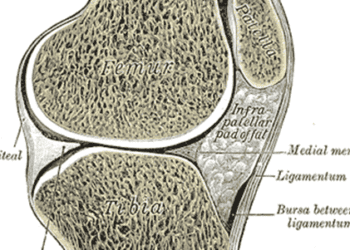Hormone replacement therapy not associated with changes in mortality in post-menopausal women
1. In this analysis of two randomized controlled trials, hormone replacement therapy (HRT) was not associated with a change in all-cause mortality among post-menopausal women.
2. No change in cancer or cardiovascular mortality was associated with HRT.
Evidence Rating Level: 1 (Excellent)
Study Rundown: The Women’s Health Initiative Hormone Replacement Therapy (HRT) trials studied the role of HRT among post-menopausal women to reduce symptom burden and improve cardiac health. Famously, the study was stopped early after it uncovered an increased risk of stroke and breast cancer among women treated with conjugated equine estrogens (CEE) with or without methylprogesterone acetate (MPA). However, no study had previously characterized mortality among treated and untreated women, or characterized the risk over time. This summary analysis showed that, in the decade since the cessation of these trials, no change in all-cause mortality was seen when CEE and CEE+MPA was pooled nor with either intervention alone. In addition, no changes in cardiovascular related deaths nor cancer-related deaths were detected between groups. While some post-hoc comparisons showed slight reductions in mortality in a few domains, such as among treated women in dementia-related disease, but the large number of comparisons without correction makes these comparisons more difficult to interpret. In addition, changes in morbidity with these interventions were not assessed by this study. Overall, it is very likely that HRT does not significantly alter mortality in post-menopausal women.
Click to read the study, published in JAMA
Relevant Reading: Menopausal hormone therapy and health outcomes during the intervention and extended poststopping phases of the Women’s Health Initiative randomized trials.
In-Depth [prospective cohort]: Using cumulative 18-year follow-up data (>98% mortality follow-up) from the National Death Index (NDI), 27,347 post-menopausal women between 50-79 years old received 7.2 years of CEE, 5.6 years of CEE+MPA, or placebo across two randomized controlled trials as part of the Women’s Health Initiative trials. There were no differences in all-cause mortality between placebo and pooled HRT (HR 0.99, CI95 0.94-1.03), CEE+MPA (HR, 1.02, 95% CI95 0.96-1.08), or CEE alone (HR 0.94, CI95 0.88-1.01). There were no differences in cardiovascular-related mortality between placebo and pooled HRT (HR 1.00, CI95 0.92-1.08) or for coronary heart disease (HR 0.97, CI95 0.86-1.09) or stroke (HR 1.06, CI95 0.90-1.24). There were no differences in cancer-related mortality between placebo and pooled HRT (HR, 1.03, CI95 0.95-1.12), CEE+MPA (HR 1.06, CI95 0.95-1.18), and CEE HR 0.99, CI95 0.86-1.13). Out of 38 comparisons including the ones mentioned above, there were no differences in mortality between placebo and pooled HRT, CEE, or CEE+MPA for colorectal cancer, other known cancer, COPD, accident or injury, other mortality, or other known mortality (p > 0.05). However, significant differences for breast cancer mortality were seen for CEE+MPA (HR 1.44, CI95 0.97-2.15) and CEE (HR 0.55, CI95 0.33-0.92) and dementia mortality for CEE (HR 0.74, CI95 0.59-0.94) and pooled HRT (HR 0.85, CI95 0.74-0.98). Sensitivity analysis excluding patients who took less than 80% of study pills did not change associations.
Image: PD
©2017 2 Minute Medicine, Inc. All rights reserved. No works may be reproduced without expressed written consent from 2 Minute Medicine, Inc. Inquire about licensing here. No article should be construed as medical advice and is not intended as such by the authors or by 2 Minute Medicine, Inc.







